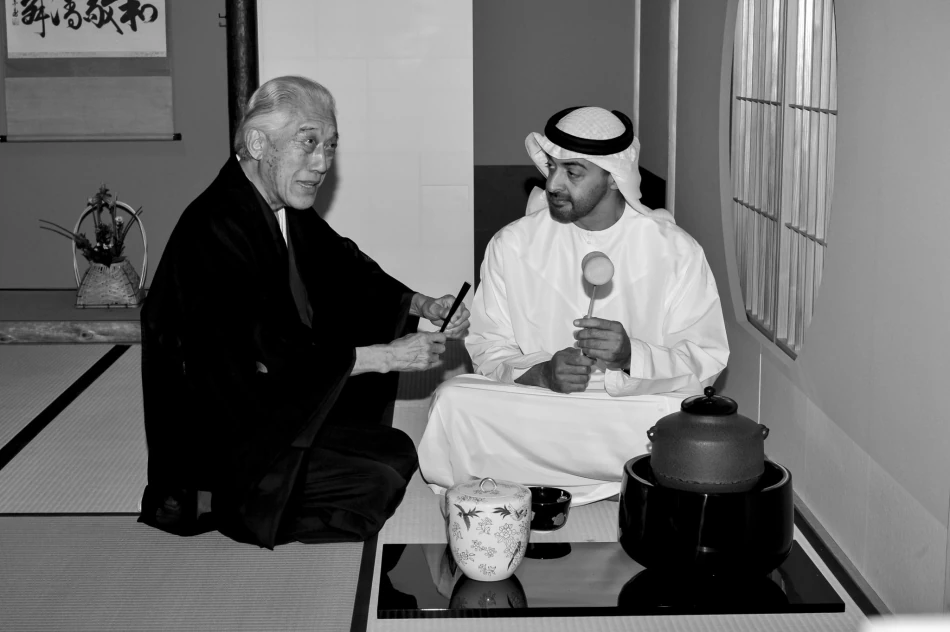
UAE Leader Mourns Passing of Dr. Genichiro Sen, Championed Cultural Exchange with Japan
UAE President Mourns Japanese Tea Master Who Bridged Cultures Through Ancient Traditions
Sheikh Mohammed bin Zayed Al Nahyan, President of the United Arab Emirates, has paid tribute to Dr. Genshitsu Sen, a renowned Japanese tea ceremony master whose death marks the end of an era in cultural diplomacy between the UAE and Japan. The loss highlights how individual cultural ambassadors can forge lasting bonds between nations through the preservation and sharing of ancient traditions.
A Symbol of Cross-Cultural Understanding
In a statement posted on his official X account, Sheikh Mohammed described Dr. Sen as "a symbol of understanding between civilizations and cultures" who served as an exemplary figure in preserving heritage for future generations. The UAE President specifically praised Sen's role in introducing Emirati people to Japan's ancient tea ceremony traditions, which have been practiced for centuries as both an art form and a meditative discipline.
"He was a model of pride in heritage and its preservation for future generations through his rituals in preparing traditional Japanese tea," Sheikh Mohammed stated, extending condolences to Sen's family, admirers, and the Japanese people.
The Deeper Significance of Cultural Diplomacy
Beyond Traditional Trade Relations
Dr. Sen's work represents a sophisticated approach to international relations that extends far beyond conventional economic partnerships. While the UAE and Japan maintain robust trade ties—with Japan being a significant investor in UAE's energy sector and the Emirates serving as a gateway for Japanese businesses entering Middle Eastern markets—cultural exchange creates deeper, more enduring connections between peoples.
The Japanese tea ceremony, or chanoyu, embodies principles of harmony, respect, purity, and tranquility that resonate across cultural boundaries. By introducing these concepts to Emirati audiences, Sen helped establish common ground between two societies with vastly different historical experiences but shared values of hospitality and respect for tradition.
Strategic Soft Power in Action
Sen's cultural ambassadorship aligns with the UAE's broader strategy of positioning itself as a global crossroads where different civilizations meet and interact. The Emirates has consistently invested in cultural institutions, from the Louvre Abu Dhabi to various cultural festivals, recognizing that soft power often proves more durable than purely economic relationships.
This approach mirrors successful cultural diplomacy efforts elsewhere, such as China's Confucius Institutes or France's Alliance Française network, but with a more organic, person-to-person focus that may prove more authentic and lasting.
Implications for UAE-Japan Relations
The public tribute from Sheikh Mohammed signals the high value the UAE places on cultural connections with Japan, particularly as both nations navigate an increasingly multipolar world. Japan's recent pivot toward stronger Middle Eastern engagement, driven partly by energy security concerns and partly by economic diversification goals, finds a natural partner in the UAE's own diversification efforts away from oil dependence.
Sen's legacy suggests that future UAE-Japan cooperation may increasingly emphasize knowledge transfer, cultural exchange, and shared approaches to preserving traditional values while embracing modernization—themes that resonate strongly in both societies.
The Enduring Power of Individual Impact
Dr. Sen's recognition at the highest levels of UAE leadership demonstrates how individual cultural practitioners can achieve what formal diplomatic initiatives sometimes cannot: genuine understanding and appreciation between different peoples. His work created a foundation for ongoing cultural dialogue that will likely influence UAE-Japan relations for generations to come.
In an era where international relations often focus on economic metrics and political alignments, Sen's approach through the ancient art of tea ceremony offers a reminder that the most meaningful connections between nations often emerge from shared human experiences and mutual respect for each other's traditions.
Most Viewed News

 Sara Khaled
Sara Khaled






